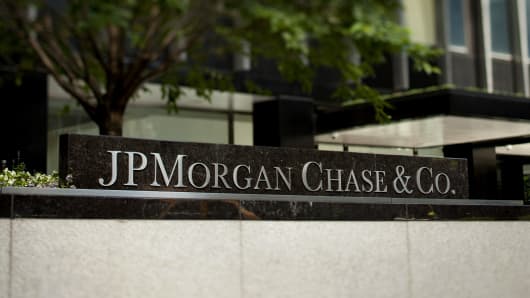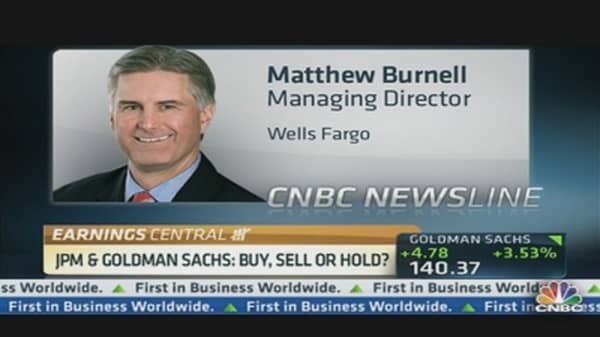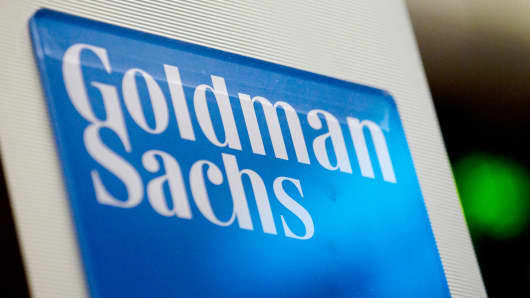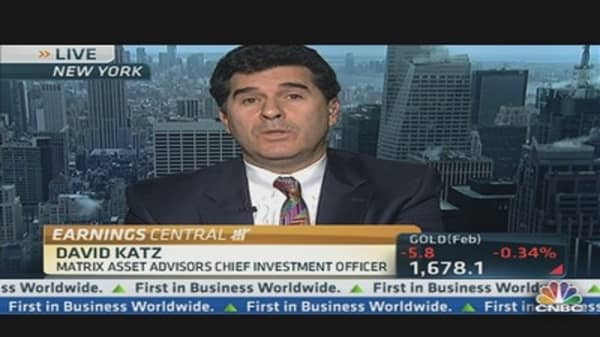JPMorgan Chase and Goldman Sachs reported fourth quarter results on Wednesday and handily beat analysts' estimates. However, comments from management and the share performance tell a different story: Banks are still struggling with revenue growth.
JPMorgan reported earnings per share of $1.39 versus analysts' estimates of $1.16. Revenue came in at $24 billion, right where analysts said it would. (Read More: JPMorgan Profit Up; 'Whale' Swallows Dimon Pay .)
But the shares were up less than half a percent by 2 p.m. ET Wednesday afternoon, and closed up 1 percent. That's because JPMorgan's net interest margin (NIM) —the difference between how much the bank pays to borrow, including for deposits, and the rate it lends at— is feeling the squeeze. It fell .07 percent this quarter and judging by comments from management, will continue to fall.
"We expect modest pressure on NIM for the next several quarters," said JPMorgan's new CFO Marieanne Lake on a call to analysts.
So far, the bank isn't making it up on volume, with muted loan growth of 2 percent. Recognizing the difficulty of finding worthwhile investments in this low interest rate environment, CEO Jamie Dimon said, "We'd prefer investing in loans to investing in securities. We're investing in securities because we can't generate loans."






